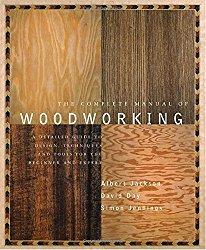This is part of a series of posts for an online class on how to use your investments to fund your retirement. To find other posts in the series, select the category “Retirement Investment Class” under “Retirement Investing” at the top.
Stocks, bonds, and REITs are the three assets that you should concentrate your attention in when investing in retirement. They are actually the main assets you’ll invest in throughout your life, but in retirement you’ll shift your allocations, buying more bonds and REITs and decreasing your stock exposure. Today let’s discuss these three asset types.
Stocks:
Common stocks, often called just “stocks” for short, are direct ownership stakes in a company. If you buy 100 shares of Apple, you will actually own a piece of Apple. Because it currently has 861.74 million shares outstanding, your ownership stake will only be 0.000012% of the company, but you still are a partial owner. This means that you will do well if Apple does well, and do poorly if it does poorly.
You make money in stocks in two ways. The first way is when the price of a stock goes up, usually due to the company becoming more valuable because they grow, sell more products, provide more services, and make more money. Note that the price only goes up when they make more money than before, not if they make the same amount of money each year (because the current price already takes the amount of money they’re making now into account).
Hey – if you like The Small Investor, help keep it going. Buy a copy of SmallIvy Book of Investing: Book1: Investing to Grow Wealthy, buy one of the products shown, or just click on one of the product links and then browse and buy something else you need from Amazon’s huge collection. The Small Investor will make a small commission each time you buy a product through one of our links.
The other way you make money on a common stock is that they pay you a portion of the profits they make four times per year in a payment called a dividend. Right now Apple pays $0.63 per share in dividends per year, so your 100 shares would result in a check for $6.30 each year. That is a yield of 1.6% per year. The dividend can increase every year as the company makes a bigger profit, so if you hold a stock for a long period of time, you can end up making a good yearly return on the original amount of money you invested. In fact, the reason stock prices go up is that they increase their dividends when they make bigger profits, which then makes the stock more valuable to own since you get a bigger check. When you’re investing in retirement, you want income to be generated by your investments, so you want to find stocks that pay bigger dividends than the average stock.
The price of a stock is simply based on their profitability (or potential future profitability), the value of the assets they have, and the feeling of people at the given time about the company. If they pay a dividend, the current rate of interest on bank CDs will also affect the price. Stocks can (and do) go up by 100% or more in a year and go down 90% or more, or even go to $0 if a company goes out-of-business. If you buy 20 stocks, about one out of the 20 will go down 90% or more in a given 10 to 20-year period. You may also have one out of the 20 go up 1000% or more during the period. Stocks therefore offer big rewards, but also can change in price rapidly, possibly resulting in quick losses.

Bonds:
A corporate bond is a loan to a company. (There are also municipal bonds, which are loans to a city or other government entity.) You can buy a bond from the company when they are issued for a preset amount, usually $1000 per bond. Most of the time you will buy bonds from other people who already own them and want to sell, paying whatever price they are selling for at the time, usually somewhere between $400 and $1200 per bond. When the bond matures, the company pays whoever owns the bond the original loan amount, usually $1,000 per bond. This means if you bought the bond at $400, you’ll make a $600 profit, but if you bought it at $1200, you’ll lose $200.
While you can make money from price changes in bonds, as demonstrated in the last paragraph, the main reason to buy bonds is for the interest they pay. Most bonds pay twice per year and pay interest rates that are well above the dividends offered by stocks. The amount that they pay is fixed over the life of the bond. For example, a GE203010% bond will pay $100 per year (ten percent of the original $1,000 purchase price) until 2030, at which point GE would pay whomever owns the bond $1,000 and no longer pay interest. They can also recall the bonds early if they wish, paying the holder $1,000 and any accumulated interest since the last payment, and then ending the payments. They often do this if interest rates drop after they issue the bonds so that they can then issue new bonds paying lower interest rates.
Because bonds are bought for their interest payments, they are very sensitive to changes in interest rates. For example, if banks start paying 1% more for buyers of their CDs, bonds may decline in price 10% or more. Because they pay the same amount through the life of the bond, if someone buys them at a lower price, they get a higher effective interest rate. In the previous example, if the GE203010% bond dropped in price to $500, someone buying the bond at that point for $500 would still receive $100 per year, so they would be getting a 20% return on their money each year even though the buyers who paid $1000 would still be getting a 10% effective return on their investment. The new buyers would also make $500 per bond in 2030 when the bond matured and GE paid them $1,000 per bond.

The two risks with bonds are that interest rates will rise, causing their price to drop, and that the company will default on the loan. If the first issue occurs, you can just keep holding onto the bond and wait, collecting interest, until the bond matures and you get paid the $1000, or interest rates go back down, which will cause bond prices to rise again. The second issue is more serious, since the company may stop paying you interest, may delay how long it takes for them to pay you, or may even only pay you a few pennies on the dollar in a bankruptcy settlement. If you are a bond holder you’ll have priority over common stock holders, but you’ll still be lucky to get $30 for your $1000 bond. This may happen with one out of 30 or 40 bonds if you buy higher quality bonds. It may happen one out of ten times if you buy low quality bonds. For this reason, low quality bonds pay higher interest rates.
REITs
REITs, or Real-Estate Investment Trusts, are portfolios of properties that trade like a stock. REITs hold portfolios of office buildings, apartments, restaurant buildings, and even cell phone towers and storage buildings. You make money from REITs due to the rents that they charge tenants and due to increases in property values. This means that they pay a good amount of income on a regular period, plus they can go up in price over time.
The returns on REITs are somewhere between those of stocks and those of bonds. You can lose money if the value of the properties go down. They will also go down in price when interest rates go up for the same reason that bond prices decline with increasing interest rates. They also go down when interest rates rise since higher interest rates tend to depress business profits and expansion, which can mean lower rents and more empty buildings.

Want all the details on using Investing to grow financially Independent? Try The SmallIvy Book of Investing.
Have a burning investing question you’d like answered? Please send to [email protected] or leave in a comment.
Follow on Twitter to get news about new articles. @SmallIvy_SI
Disclaimer: This blog is not meant to give financial planning or tax advice. It gives general information on investment strategy, picking stocks, and generally managing money to build wealth. It is not a solicitation to buy or sell stocks or any security. Financial planning advice should be sought from a certified financial planner, which the author is not. Tax advice should be sought from a CPA. All investments involve risk and the reader as urged to consider risks carefully and seek the advice of experts if needed before investing.
